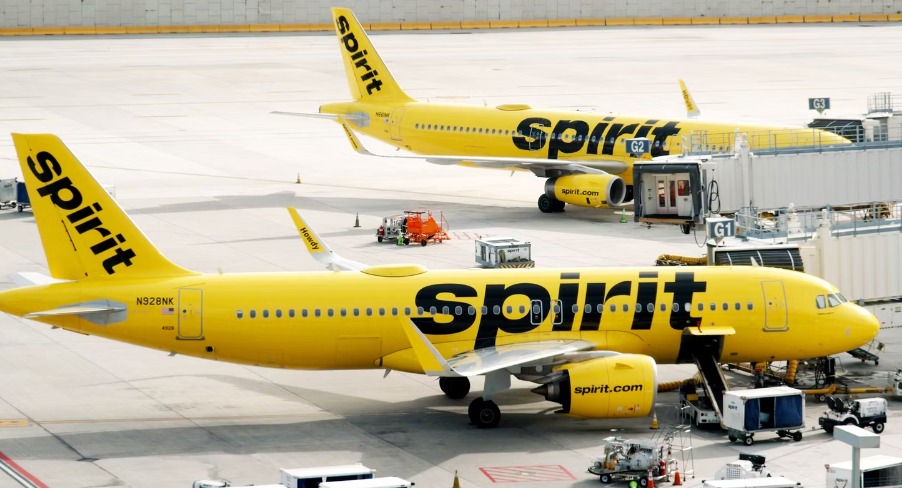Spirit Airlines’ restructuring plan has been approved by a US bankruptcy court on February 20, 2025. The company expects to emerge from chapter 11 in “the coming weeks”.
“Today's approval is a major milestone as we progress toward the successful conclusion of our in-court process," said Spirit CEO and president Ted Christie. “We will emerge as a stronger airline with the financial flexibility to continue providing guests with enhanced travel experiences and greater value.”
Under the plan, Spirit will equitize $795 million of funded debt, receive $350 million of new equity investment and issue $840 million new senior secured notes to existing bondholders after its chapter 11 emergence. Spirit will enter into a new revolving credit facility of up to $300 million, the company added.
“Throughout this process, we've had virtually unanimous support from our bondholders, who recognize Spirit's value and potential,” added Christie.
Spirit added that its vendors, aircraft lessors, and holders of secured aircraft indebtedness will not be impaired by the restructuring plan.
“Existing interests in the company, including holders of the company’s common stock prior to emergence, will receive no recovery or distribution on account of such interests, and upon emergence from chapter 11, all such existing interests, including the company’s common stock, will be cancelled, released, extinguished, and discharged, and will be of no further force or effect,” Spirit read in a stock filing.
As of February 19, 2025, there were 109.5 million shares of the company’s common stock issued and outstanding. After emerging from restructuring, the company expects around 40.3 million shares of new equity interests issued and outstanding.
The airline had filed for bankruptcy on November 18, 2024, and was approved to continue operations as normal the following day. Spirit confirmed this will continue.
Throughout the chapter 11 process, Frontier has been courting Spirit with merger proposals, with the latter rejecting three times. Frontier had also rejected counterproposals. Frontier’s latest proposal was submitted on February 4, 2025, to Spirit. Under the contract, Spirit’s stakeholders would receive $400 million of second-lien debt issued by Frontier and 19% of Frontier’s common equity following a merger. In addition, the new proposal would not require Spirit to complete the previously detailed $350 million equity rights offering, as well as requiring a waiver of the bankruptcy court-approved $35 million termination fee.
Spirit had submitted a counterproposal on February 7, 2025, in which $600 million debt and $1.2bn in equity would be provided to Spirit stakeholders. Spirit said this would be “equal to the amount of value that Frontier claimed it was providing to Spirit stakeholders” in its proposal.
Both parties expressed an interest in continuing negotiations. In a joint letter from chairperson Bill Franke and CEO Barry Biffle, Frontier had warned Spirit that its standalone plan meant it would emerge from chapter 11 “highly levered, losing money at the operating level”. Frontier added that it would not pursue a merger with Spirit post-restructuring, urging that “time was of the essence”.
With the restructuring deal approved, Judge Sean Lane in the Southern District of New York handed over control of Spirit to its majority bondholders, including Citadel Advisors, PIMCO, and Western Asset Management, according to court documents.
A person familiar with the matter believes that, despite the approved restructuring plan, Frontier may still return to Spirit and its new owners with another offer. The person added that time may also be critical for Frontier, as other potential suitors may find Spirit attractive, given its fleet of over 200 Airbus A320 family aircraft—143 financed under operating leases and 56 owned, five of which were unencumbered as of September 30, 2025—and the ongoing supply chain shortage.
However, a merger may still seem precarious after Spirit's failed attempt at a merger with JetBlue early last year after it was blocked by the US Department of Justice. With a new administration, it remains to be seen how competition authorities will treat such acquisitions.
Davis Polk & Wardwell is serving as the company's restructuring counsel, Alvarez & Marsal is serving as restructuring advisor, and Perella Weinberg Partners is acting as investment banker.
Akin Gump Strauss Hauer & Feld is acting as legal counsel and Evercore is acting as financial advisor to the ad hoc group of loyalty noteholders.
Paul Hastings is acting as legal counsel and Ducera Partners is acting as financial advisor to the convertible bondholders.

